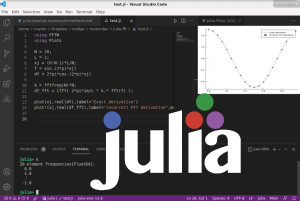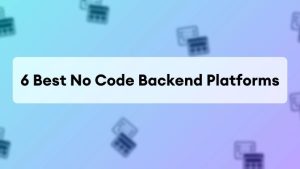Preparing early for a career has become more important than ever in this world of competition. Both locally and globally. The choice of career path will guide me towards a focus readiness journey during student life. If planned and executed carefully this should not negatively affect the result of the student. Instead in the relevant areas, it will give a greater level of confidence.
Starting class in 1996, I finished my BSc in CSE from BUET in the year 2002. As I was from the HSC batch of 1995, already I lost a valuable year of my life in a “session jam”. I started working on commercial software projects during my student life and chose to be an entrepreneur instead of looking for a great job a CSE graduate(from BUET) may dream of. Was that the right decision at that time? This will be answered in a separate write-up which may be valuable for guys who are in confusion while choosing between a job and entrepreneurship. In this article, I will try to highlight a few areas that will give someone an upper hand as a job seeker and an entrepreneur as well. Most of them I could not do well and feel very sorry for that.
Here are the things I have found to be the most important ones:
Choose a career path when you are in 3rd year (latest)
Roughly speaking, in the first two years of CSE students, the courses that are covered are mostly targeted to the various fields of work that students may choose to work in. Programming, Data Structures, and Database Concepts are some of the courses that are necessary for every CSE graduate in whichever area you intend to work for. In 3rd year, a student should have a pretty clear idea of which career path he/she is going to take. It is important because nobody(almost) can be a master of all subjects that are taught in undergrad. But it is critically important that someone doesn’t do poorly in the subjects that are related to the career direction he/she is considering. After securing the best results in those subjects, give your best effort to do good other subjects as well. But it’s not an easy job for everyone. So if you think that you are unable to do very well in all subjects, make an informed decision to prioritize one course over another. As an example, if someone plans to work in the software industry, he/she should keep any weaknesses in Software Engineering, System Analysis and Design, and similar other theory or lab courses. And if someone is eager to become a networking expert, he/she should not lose any part of Network Essentials.
Tuition vs Freelancing
Many students need to make some earnings for the limited financial support they receive from their families. If possible, forget about earning a lot of money during student life(for some this becomes an addiction). If not possible, do something that will help you strengthen yourself in areas related to your chosen career. For someone planning to go into the software industry, it may be a good option to teach programming to HSc/A-level students or do some freelancing programming work instead of private tuition. One reason it will feel a little difficult is that for the tuition of regular subjects, you don’t need to do additional study(you already covered them pretty well before BUET admission). But keep in mind that this choice is not helpful at all for your future career.
Thesis/Project in the relevant area
Every student needs to choose a topic for the thesis/project as part of his/her BSc coursework. Try to choose something that is directly related to the career path you are targeting. A good amount of effort is given to this purpose. The same effort that helps you in getting an A+ in the course will give you an extra boost in your career preparation.
Institution/Degree vs Skill
Always keep in mind that people will choose you for your degree/institution, but they will revere you and promote you for your skills. Skills matter most. Don’t even expect an extra advantage over others only because you graduated from a good institution. Instead, there are risks. Examples: superiority complex, people’s over-expectation of you, feeling down when comparing yourself to your classmates (say in Google, Microsoft, etc.)
Soft Skills
Many a time I found worse results than expected from a discussion only because I just could not communicate it properly, or I couldn’t convince some key decision-makers or the people around me are not confident in my ability. This is not about technical ability. Instead, it’s the set of soft skills that will move you faster to the top position. Think about Sundar Pichai. He is an IIT graduate (not even from CSE). Now he is the CEO of Alphabet (the parent company of Google, YouTube, Waymo, and many others). Is it because of his technical skill? Definitely not.
Software Engineering-Related Preparations
If you intend to build your career in the software industry, please give your best effort to learn these few things during student life. It will give an extra headstart compared to others.
- Competitive Programming: Frankly, I didn’t use to think of this as an important factor during my early years in the industry. But from two decades of experience in the industry, I am now pretty confident that a boy good at competitive programming will do better in the software profession. There are many reasons for that. I am not going into the details here.
- Unit Testing: Please learn it and try to keep using it. Many people will tell you that for a brilliant student like you, it’s a peanut to learn and write unit tests when you join somewhere. Trust me, they misguided you completely. It’s one thing to learn this in the 1st/2nd year and practice the whole student life. It’s a completely different thing altogether to learn it after you pass and join some job. It’s not a matter of brilliance, it’s about practice.
- Git: Nowadays most students learn it during their student life. I would recommend having a better understanding of branching, merging, conflict resolution, and patch-making for getting the best out of it.
English: Being good in English (reading, writing, speaking) will give you an extra advantage over others. It can not be covered by anything else. For software engineers(and many others), you will have to read hundreds of pages every day. Just think about the rate of progress if you can read a page 2x faster than the other boy. It’s a direct multiplier of your performance/rate of progress.












